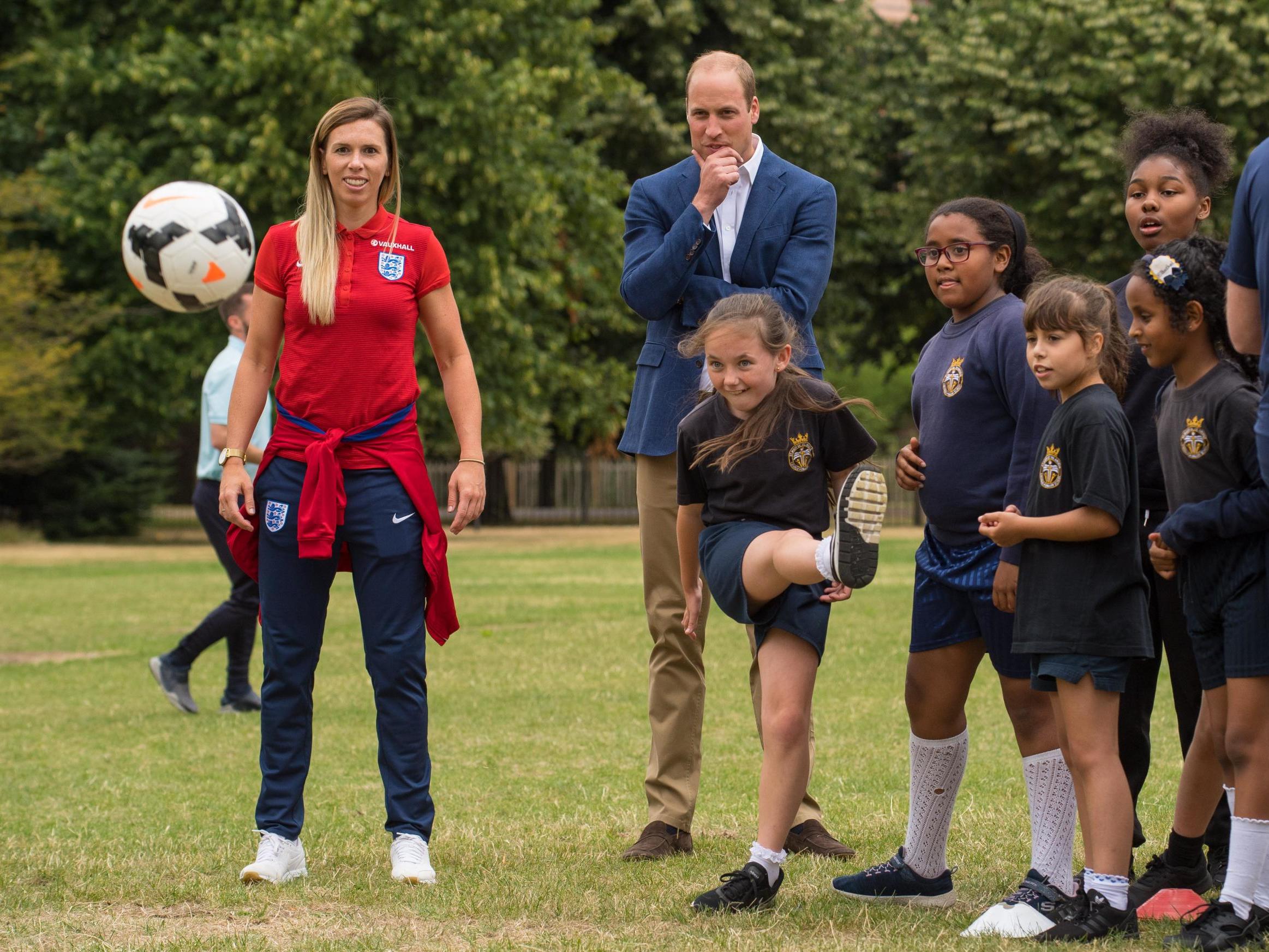Sport England survey reveals 'unacceptable' levels of inactivity among children
According to the findings, fewer than one in five children are meeting the chief medical officer guideline of more than 60 minutes of activity every day

Your support helps us to tell the story
From reproductive rights to climate change to Big Tech, The Independent is on the ground when the story is developing. Whether it's investigating the financials of Elon Musk's pro-Trump PAC or producing our latest documentary, 'The A Word', which shines a light on the American women fighting for reproductive rights, we know how important it is to parse out the facts from the messaging.
At such a critical moment in US history, we need reporters on the ground. Your donation allows us to keep sending journalists to speak to both sides of the story.
The Independent is trusted by Americans across the entire political spectrum. And unlike many other quality news outlets, we choose not to lock Americans out of our reporting and analysis with paywalls. We believe quality journalism should be available to everyone, paid for by those who can afford it.
Your support makes all the difference.Sports minister Mims Davies has called the findings of new research into how much sport and exercise children are doing "simply unacceptable".
Published by Sport England, the 'Active Lives Children and Young People' survey is based on responses from over 130,000 children aged five to 16 during the last academic year.
It found that around two in five children, nearly three million in total, lead active lives, which means they do an average of 60 or more minutes of physical activity a day.
Nearly one in four are classed as "fairly active", which means they do between 30 and 59 minutes of physical activity a day, but one in three are not even reaching that standard and are described as "less active".
Overall, fewer than one in five children are meeting the chief medical officer guideline of more than 60 minutes of activity every day.
In a statement, Davies said: "While it is encouraging that three million children do at least an average of 60 minutes of sport or physical activity every day, the number of young people who are not doing enough is simply unacceptable.
"We know that an active child is a happier child and efforts must be stepped up to encourage young people to live healthy, active lives and I know that Sport England are committed to making progress in this area."
The sports minister said the government's "school sport and activity action plan" would help to ensure that all children have access to good coaching and facilities and urged local communities, parents and the sports sector to build a "comprehensive and cross-government offer".
The study also revealed that family income plays a significant role in how active children are, with 39 per cent of children from poorer backgrounds doing less than 30 minutes physical activity a day, compared to 26 per cent of children from more affluent families.
Another example of the impact wealth has on a child's activity levels can be seen by the breakdown for swimming 25 metres unaided: overall, 77 per cent of children can do this by the time they leave primary school, but the figure for children from poorer families is only 42 per cent, compared to 86 per cent for the more affluent.
Among the survey's other findings are confirmation that boys are still more likely to be active than girls and the gap between them grows as they get older, and the fact that activity levels peak at the end of primary school and start of secondary school, but no age group reaches a majority of children doing the recommended hour of exercise every day.

Sport England chief executive Tim Hollingsworth said: "This research is the first of its kind anywhere in the world and is a big wake-up call for all of us.
"We all care about the health and wellbeing of our children. These results tell us that what is currently being done to support them is not enough and change is required."
Hollingsworth's call for urgent action was backed by Emma Boggis, the chief executive of the Sport and Recreation Alliance, the umbrella organisation that represents more than 300 national governing bodies for sport and exercise.
"As a nation we must declare that enough is enough," said Boggis.
"Today's results confirm that our children and young people are not active enough to be happy and healthy and collectively we are in danger of breeding a generation of children that will die earlier than their parents.
"Acknowledging the issue is the start to the solution, but it is crucial that government works with the sector, schools, communities and families to get more of our youngsters active over the coming months and years.
"As a nation, we should refuse to settle for anything less."
PA
Join our commenting forum
Join thought-provoking conversations, follow other Independent readers and see their replies
Comments